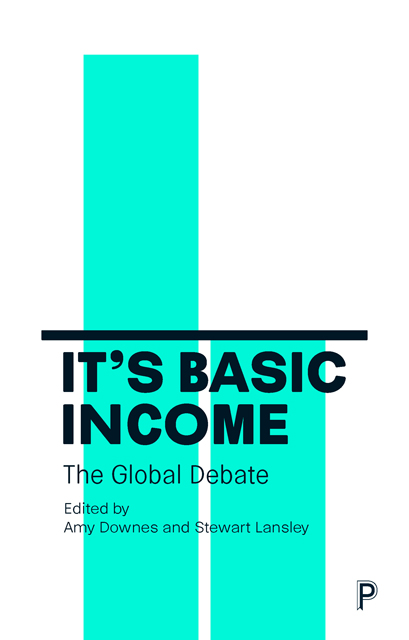4 - Questioning the ‘natural order’
Published online by Cambridge University Press: 11 April 2023
Summary
‘Basic income is a radical notion. It seems to question the “natural order” of things.’
Most of the great social innovations that humans have achieved must have looked ridiculously idealistic until they actually happened. Imagine what a medieval peasant would have thought of the idea that she might be given a vote, a say in how the rulers ruled her? Wouldn’t her reaction have been one of pure scepticism: ‘What’s the catch? Why are they doing it?’ And, if you’d managed to convince her that there wasn’t a catch, wouldn’t it have required a huge leap of imagination to envisage a world where anything like a Parliamentary democracy could exist, with would-be rulers having to compete peacefully with each other to capture public support, liable to be voted out if they failed to satisfy that public? It would have seemed like pure idealistic fantasy. The same would be true of the abolition of slavery, voting rights for women, the National Health Service, and the abolition of child labour: all pie-in-the-sky until they happened.
Now all of those ideas seem to us self-evident. We take them for granted: a world without any one of them would look like a bleaker, more primitive place.
Basic income is a radical notion. It seems to question the ‘natural order’ of things. But the natural order is just what we’ve become used to. Society is a construction of beliefs in which we all take part – if even simply by not questioning them. The natural order once held, with great certainty, that of course children should work, that of course black people were incapable of the finer human feelings that Northern Europeans shared, that of course women were not intellectual beings capable of forming an opinion about politics. Basic income calls into question another fundamental premise of Western civilisation. We’ve all grown up with the idea that our identities are centred in our role as workers, and of course to be without a job is both socially irresponsible and morally shameful. We’re not pulling our weight … we’re ‘burdens on society’.
But are all the people who don’t work now – and there are many – really burdens on society? Think of the women (and men) who’d prefer not to work but instead spend time bringing up their children.
- Type
- Chapter
- Information
- It's Basic IncomeThe Global Debate, pp. 31 - 35Publisher: Bristol University PressPrint publication year: 2018



